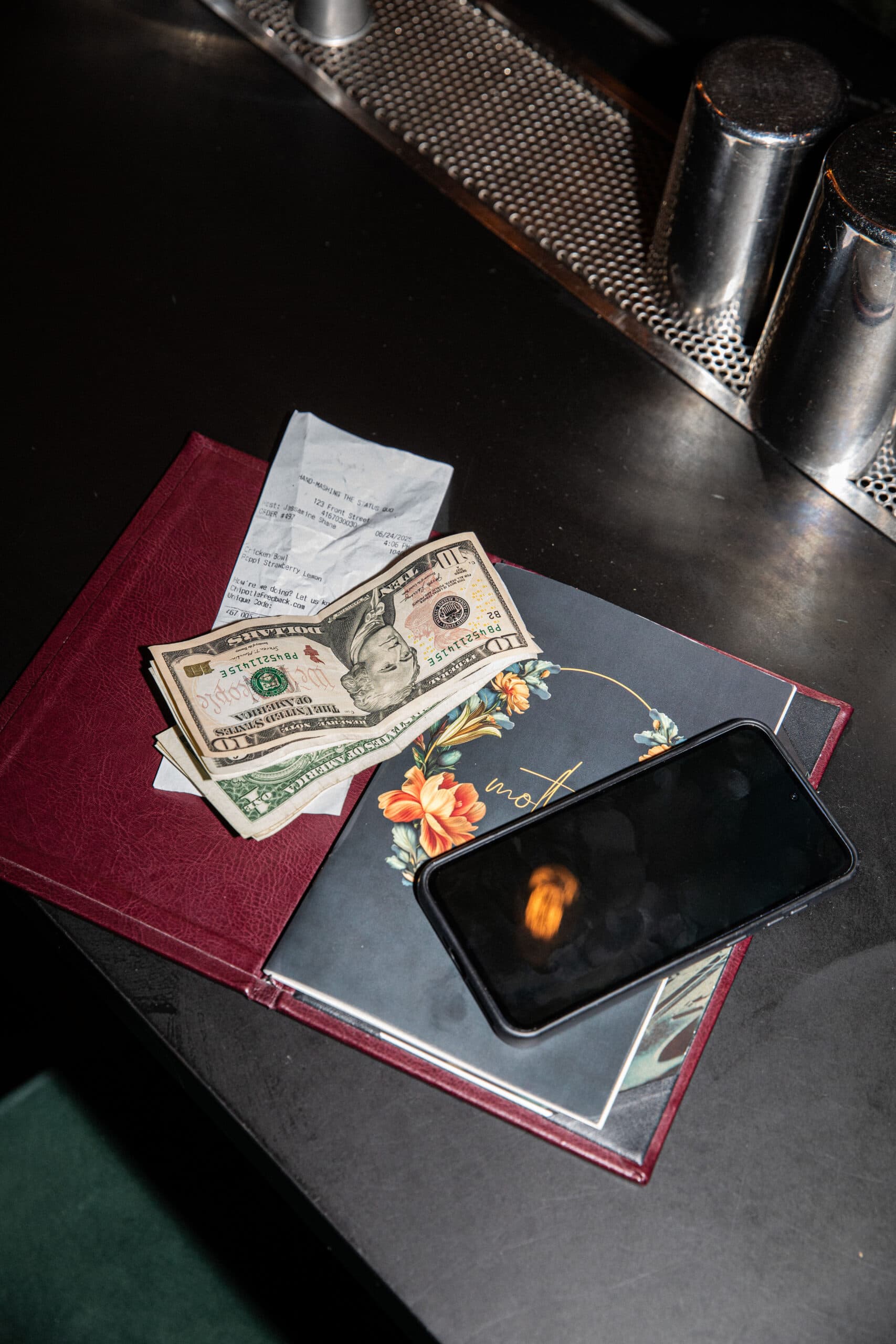Summary
Location: Hawaii, USA
Hawaii’s tip laws are designed to protect workers and keep restaurants accountable. Tips must be completely voluntary and directed to the worker. Meanwhile, automatically added fees are treated as wages and can’t count toward a tip credit unless clearly disclosed.
Key provisions:
- Employers may apply up to a $1.25 per hour credit, but using the combined wage minimum
- Tipped employees must earn at least $20 per month in tips
- BOH staff can join a pool only if all workers are paid the full state minimum wage
- Tip laws may soon change to phase out tip credit or restrict service charges
Hawaii has some of the most complex and protective tip laws in the U.S. This makes the stakes higher for restaurant owners and operators. If your team earns tips, you need to follow a strict set of rules around wages, service charges, credit card fees, and tip pooling. Getting it wrong can mean thousands in back pay, penalties, or even legal trouble.
2026 Tipping Playbook
Learn how to manage, distribute, and track tips fairly—while staying compliant and keeping your team’s trust.

What counts as a tip in Hawaii?
A tip in Hawaii must meet four conditions. First, the payment has to be voluntary. The guest decides to leave it on their own. Second, the customer controls the amount. If it’s a flat percentage added to the bill, it’s not a tip. Third, the payment can’t be set or required by the employer’s policy. Finally, the guest must be free to choose who receives the tip.
What counts as a “service charge?”
In Hawaii, a service charge is any fee set by the restaurant, not by the customer. If it’s automatically added to the bill, like a 20% gratuity for large parties or catered events, it’s legally not a tip under both state law and federal law.
Because the employer controls this charge, the law treats it as regular wages, not a reward from the guest. That means it must be taxed like other wages, included when calculating overtime, and can’t count toward a tip credit. This is key for Hawaii employers using a lower tipped wage.
If you keep any portion of the service charge for the business, or don’t give it directly to your tipped employees, you must make that crystal clear to your guests. Without clear disclosure, the law assumes that money is meant for your staff. This opens you up to wage claims, audits, and violations under Hawaii’s labor standards laws.
To stay compliant, always add a line on your menu and receipts that explains where the service charge goes. For example: “A 20% service charge is added to all checks. This charge is not a tip and is used to cover business operations.”
Who qualifies as tipped employees in Hawaii?
Not every employee who gets a tip is considered a tipped employee under the law. To qualify, they must regularly earn at least $20 per month in tips. This rule helps separate workers who get occasional tips from those who depend on them as a regular part of their pay.
But there’s more. Even if an employee qualifies, you can only apply the tip credit during tipped work. That means time spent doing things like waiting tables, bartending, or running food.
You can also count related tasks, like rolling silverware or setting up tables, but only if they happen right before, during, or after tipped duties. You can’t apply the tip credit when an employee is doing unrelated work, like running errands or deep-cleaning the storage room.
The state’s tip credit rules are some of the strictest in the country. Hawaii’s minimum wage is set at $16 per hour, but if you’re using a tip credit, you can pay tipped employees as little as $14.75 per hour in direct wages. That’s only allowed if you apply the maximum tip credit of $1.25 per hour.
Most states only require that the employee’s total earnings hit the state minimum, but Hawaii takes it further. In the Aloha State, your employee’s total pay (wages + tips) must average at least $23 per hour for the pay period. This is known as the combined wage rule, and it’s unique to Hawaii.
If your employee doesn’t hit that $23 threshold, you’re legally required to make up the difference. That’s why it’s critical for Hawaii employers to track tips carefully and review pay data regularly to stay compliant.
Tip pooling rules in HI
Tip pooling is legal in Hawaii, but only if it’s done the right way. First, if you want to set up a mandatory tip pool, you must notify your team ahead of time. This means explaining how the pool works, who’s part of it, and how the tips are split. It can’t be a surprise.
Also, every FOH employee in the pool, like servers and bussers, must still take home at least the full state minimum wage. If they don’t, you can’t legally take a tip credit for them.
You can include BOH staff, like kitchen workers, dishwashers, and prep cooks, in the tip pool. However, restaurant tip pooling laws say that you can’t take the tip credit. That means you must pay everyone in the pool the full state minimum wage with no reduction, no matter how many tips they earn.
Stay compliant by putting your tip pool policy in writing and making sure every team member understands it. Train your managers to enforce the rules consistently, and keep clear records of how tips are collected and distributed. Logging this data in your restaurant payroll system helps prove you’re doing it right if there’s ever an audit.
Credit card tips and processing fees
When customers leave tips on a credit card, it’s still the employee’s money, but Hawaii law does give restaurant owners some flexibility. As an employer, you can deduct a portion of the processing fee that your credit card company charges. This means if the card company takes 3% from the transaction, you can take 3% from the tip as well.
That said, you still need to pay out credit card tips by the next regular payday. It doesn’t matter if the funds haven’t hit your business account yet. Your team shouldn’t have to wait weeks to get the tips they earned.
Just like service charges, you must be transparent with your team. Document the exact percentage you deduct and explain it clearly to your staff. This builds trust and helps avoid confusion or frustration. Also, make sure your payroll system tracks credit card tips separately so you can pay them out accurately and on time.
What’s changing and what comes next
Hawaii tip laws are already strict, but bigger changes could be on the way. Two key bills are signaling where things might be headed, and restaurant owners need to be ready.
The first, HI HB684, would phase out the tip credit entirely by 2031. That means by the end of the decade, you may no longer be allowed to pay tipped employees a lower base wage. You’d have to pay them the full state minimum wage, no matter how much they earn in tips.
The second bill, HI SB1256, focuses on mandatory service charges. If passed, it would limit these charges to large parties of 10 or more, cap them at 18%, and require both verbal and written notice to customers. This would make it harder to use blanket service charges to cover rising labor costs.
These bills haven’t passed yet, but they reflect how Hawaii is moving toward more wage protections for workers in the service industry. That means higher labor costs for you.
Now is the time to plan ahead. Start modeling your labor costs without relying on the tip credit. Look at how it would affect your budget if you had to pay everyone the full wage. Then, do some menu engineering to optimize your offerings. You should also take a close look at service fees to see if they’ll still work under new rules.
If the tip credit goes away, your business will carry more of the compensation burden. Preparing now means fewer surprises, and fewer risks, later.
Conquer tip laws with confidence
Don’t be discouraged by Hawaii’s strict tip laws. Instead, you should be proud to be part of a state that protects its workers. These rules may feel complex, but they’re built to maintain fairness and clarity for both restaurant teams and employers.
Fortunately, managing tips doesn’t have to be a guessing game. 7shifts’ tip management software has automated tip pooling, clear reporting, and direct integration with your POS and payroll systems. You set the policies, we handle the math and the records.

Rebecca Hebert, Sales Development Representative
Rebecca Hebert
Sales Development Representative
Rebecca Hebert is a former restaurant industry professional with nearly 20 years of hands-on experience leading teams in fast-paced hospitality environments. Rebecca brings that firsthand knowledge to the tech side of the industry, helping restaurants streamline their operations with purpose-built workforce management solutions. As an active contributor to expansion efforts, she’s passionate about empowering restaurateurs with tools that genuinely support their day-to-day operations.
